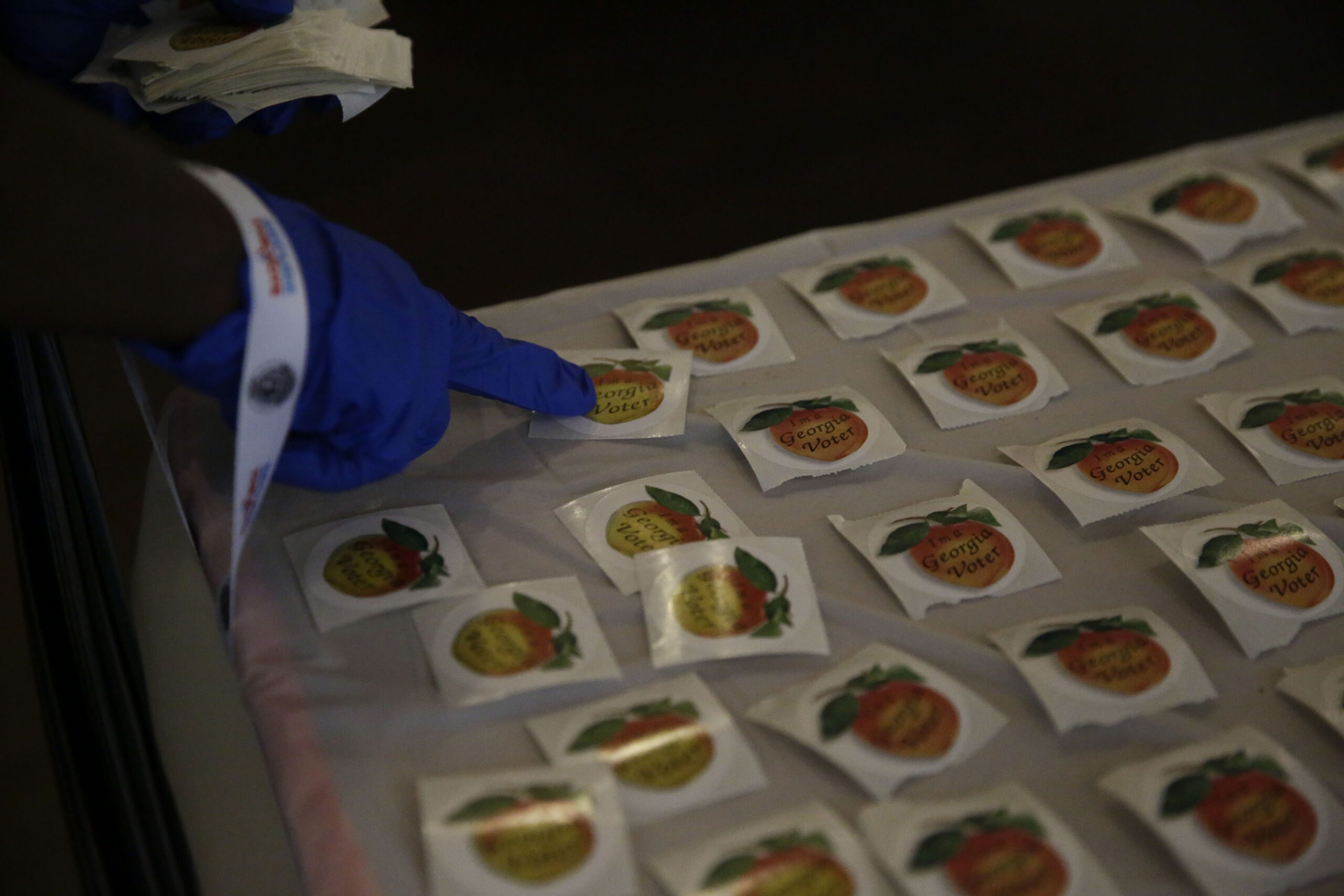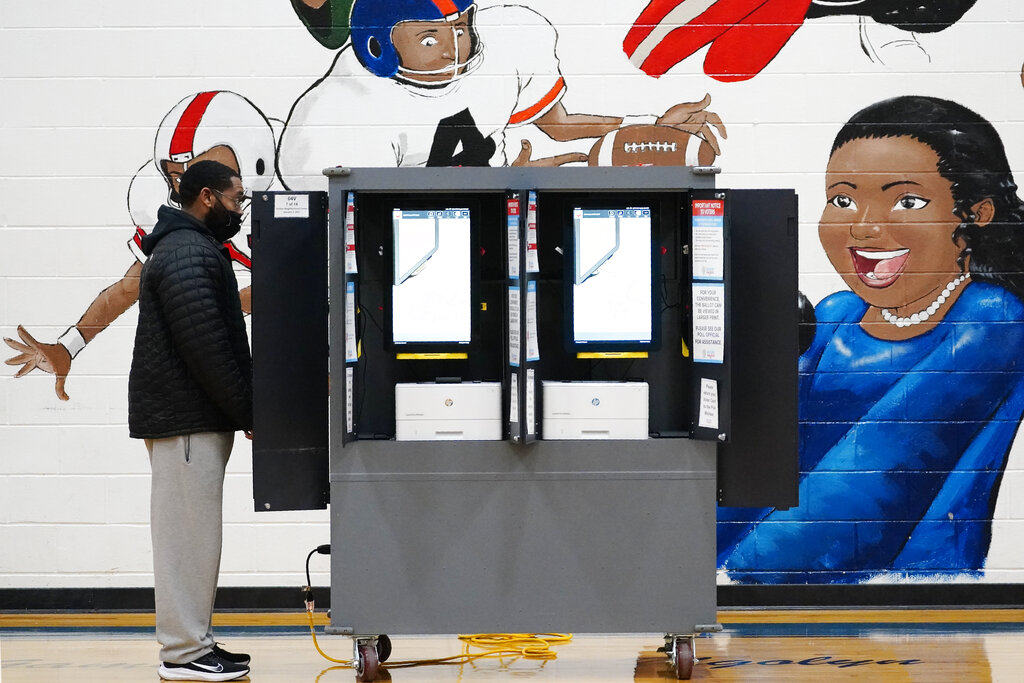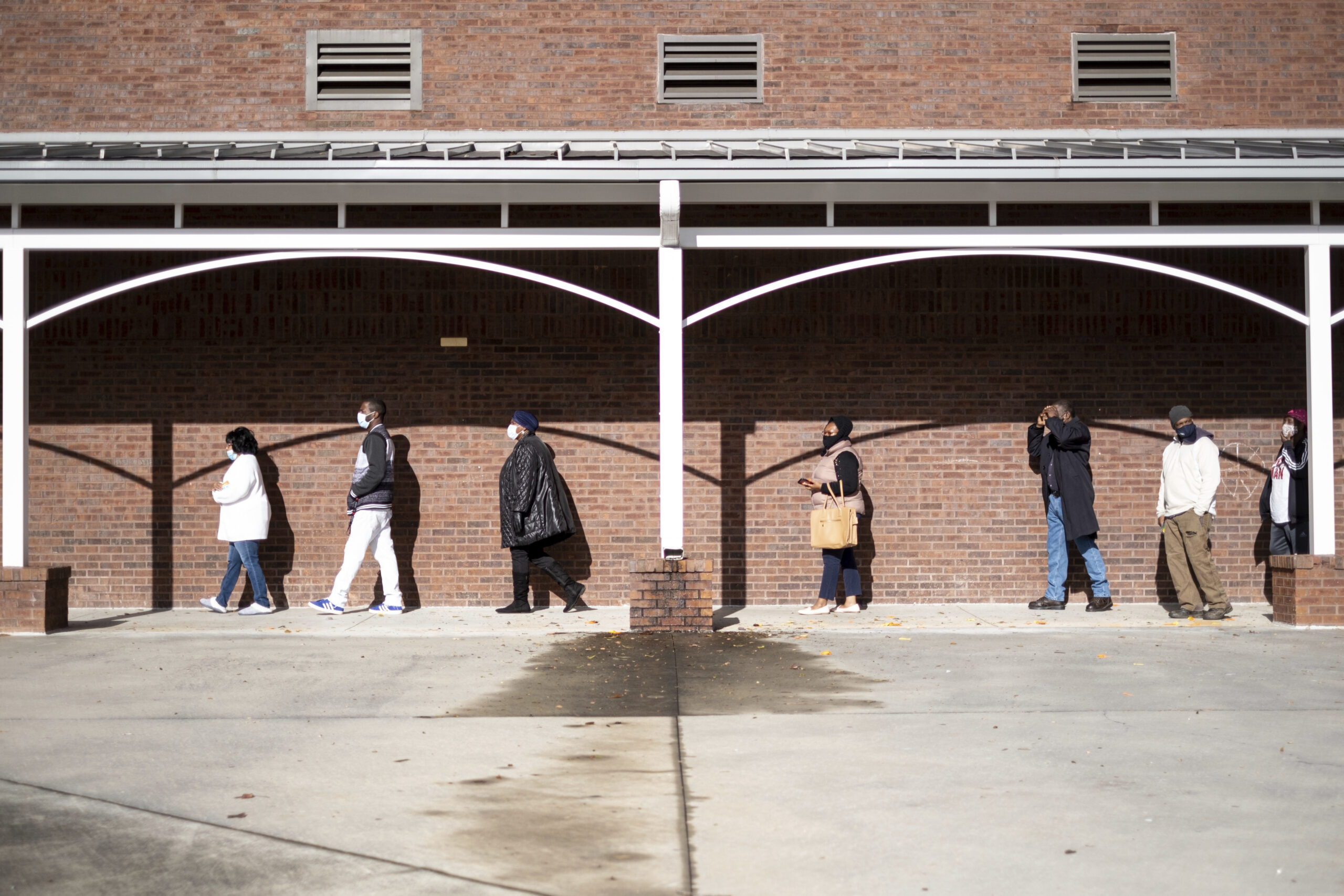This coverage is made possible through Votebeat, a nonpartisan reporting project covering local election integrity and voting access. The article is available for reprint under the terms of Votebeat’s republishing policy.
An estimated 23,000 teenagers in Georgia who were too young to vote in the Nov. 3 general election will turn 18 in time to participate in the Jan. 5 runoff races for Georgia’s two U.S. Senate seats, according to The Civics Center, a nonprofit that promotes youth civic engagement.
With the state’s tight margins and the fate of Senate control in Georgia voters’ hands, there is a chance that a good share of the incoming campaign funding and attention will be directed toward these new voters. The deadline to register is Dec. 7, and 17-year-olds with a birthday before Jan. 5 are eligible.
Young voters have already had much more of an impact on this election than they do traditionally, and hardly anywhere more so than in Georgia. Analysis by the Center for Information & Research on Civic Learning and Engagement at Tufts University shows that Georgia voters aged 18-29 made up 21% of all votes cast in the state, 4% higher than the national average.
Georgians in that age group overwhelmingly chose President-elect Joe Biden over President Donald Trump, 57% to 39%. This was all the more true for Black voters under 30, who preferred Biden over Trump by 82%.
But because younger voters usually have the lowest turnout rates of any group, politicians often do not pursue their vote, said Dr. Tammy Greer, a political science professor at Clark Atlanta University.
“It’s a chicken or the egg kind of a situation, where candidates don’t reach out so the youth vote does not participate, and then the youth vote does not participate; therefore, the candidates don’t court their vote,” Greer said.
Despite that, she said she has seen firsthand a higher level of engagement among her students this election cycle, and that it has extended beyond the presidential race.
“I see the level of engagement increase, and there’s critical questions being asked, so it’s not just superficial, or parroting what they heard on the news, or parroting what they heard on social media,” said Greer. “I also see that some of them are engaging peers and their parents who may not have participated in voting previously.”
Groups working to convince more people in this age range to vote are well aware of the need for peer engagement. In fact, many of them are run by students themselves, like Edward Aguilar, CEO of Students for Tomorrow. Aguilar is a high school student in Georgia who founded the organization to encourage students to cast their ballot where their vote would count the most.
“The last 30 years of political science has shown that the No. 1 way to get students under the age of 34 to vote is peer pressure,” said Aguilar.
At 17, he has not been able to vote in his first election yet, but that hasn’t stopped him from engaging in the process and working to engage his peers.
The organization he co-founded with four other students from Alpharetta High School not only encourages students to register to vote, it provides a tool on their website for college students attending an out-of-state school to determine in which state their vote would have more impact.
Most states, including Georgia, allow students attending an out-of-state institution to register to vote either in their home state or the state of the school.
“These are people that would go to set red or set blue states, and now could be moving anywhere in the country,” Aguilar said. “That means a lot more people playing in the battleground states.”
Michael Giusto, a co-founder of Students for Tomorrow, was also too young to vote on Nov. 3 but will be turning 18 later this month. He plans to be one of the new Georgia voters casting a ballot in the Senate runoffs.
“I wish that I could have voted, if I had been born just two weeks earlier then I would have been able to vote, and that’s really crazy to think about,” said Giusto. “The moment I turn 18, I am going to register to vote in preparation for the runoff happening in January.”
Campus Vote Project is a national organization making sure students who will be eligible know how and where to vote.
“Not only are we trying to ensure that students are registered, but we are ensuring they know how to cast a ballot,” said Ciarra Malone, Georgia state coordinator for Campus Vote Project.
Malone said they’re focused on fielding questions from students.
“Whether or not they need to be requesting an absentee ballot as soon as possible, or whether they can change their voter registration to their hometown, or whether they need to stay registered at school because that is where they are during the holiday season,” she said.
“We’re trying to make sure we are answering all of those questions so students know exactly what to do come January.”








